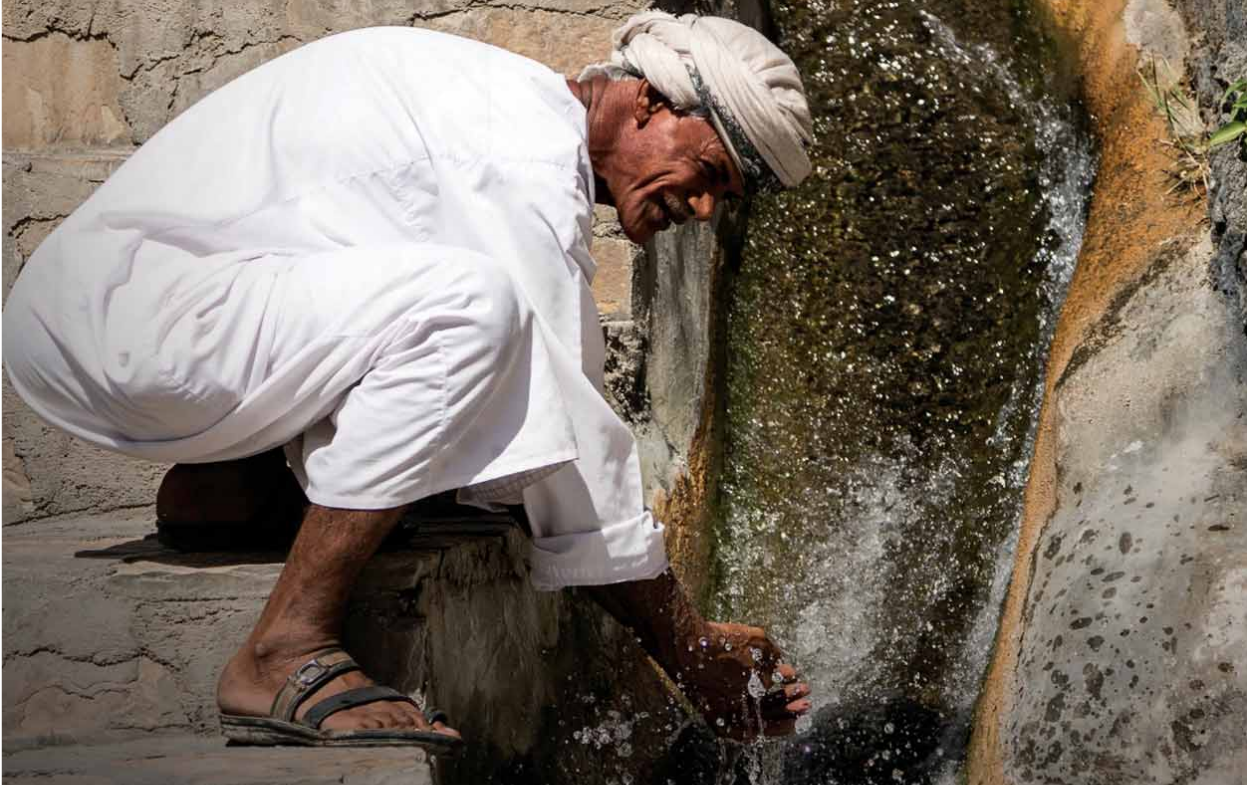

NIZWA: Perpetual and ubiquitous, the Falaj system of the Sultanate has long sustained life in what could have otherwise become an arid, inhospitable environment.
Collectively, or plurally known as an Aflaj system, comprising more than one falaj, their origins are believed to be Persian, where they were known colloquially as the Qanat. Omani Researcher, Zaher Al Suliemani explains that Aflaj exist in many dry regions of the world, such as China, Pakistan, and Turkey, though singular examples exist in Asia and the Americas. Al Suleimani contends that most of the Aflaj were constructed in the period under Persian rule, between 1500 and 2000 years ago, though a second researcher Waleed Al Tikriti, in 2002, established the local origins to be consistent with the ancient legends of King Solomon, who ordered djinns to “dig one thousand Aflaj, every day,” to save the nation.
In each falaj water is channeled, mainly underground, from a mother source, called an Um Al Falaj, or ‘Mother of the Falaj,’ and gravity fed to provide domestic water and to irrigate farmlands, especially in the Dakhilyah, Sharqiyah, and Batinah regions, where the Daris, Khatmeen, Malki, Jeeta, and Mayassar Aflaj, are all UNESCO World Heritage sites.
The management of the water, and its division between its shareholders, is managed by a Falaj-keeper, or Wakeel, a hereditary position in most situations, where the water is allocated between the government, local landowners and residents according to their needs, hereditary rights, and contributions to the upkeep of their local falaj, with channels to be opened or closed, feeding the ‘shareholders,’ according to their share.
The timings are still calculated today at Lizagh, according to the ancient measurements of an upright pole, adjacent to the falaj, with stones marking the beginning and end of each share, where the Wakeel is Rashid Al Nadabi, who, like his father before him, still observes the age old tradition. The Falaj Al Malki, near Izki, has suffered from diminishing rainfalls in recent years, but a government program during 2018/19 has seen a number of inspection holes drilled, and wells upgraded, to ensure the level of maintenance required is achieved, with the local Wakeel, Salat Al Tobi, leading a volunteer operation to clean and refurbish the damaged elements of the system, with gratifying results.
At Birkat Al Mouz, at the foot of the mighty Jabal Akdhar, the Al Khatmeen Falaj is perpetually delivering cool, clean, clear water to the local farms, from which the town derives its name. Khamis Al Dughaishi is the local Wakeel, incredibly passionate about his community role in managing the town’s Falaj, and for him, it is a ‘labor of love.’ The Falaj Al Jeela, near Tiwi, is of a quite different type, owing much of its engineering construction to the Ancient Roman aqueducts, and it is accordingly known as the ‘Hanging Falaj.’
Dates, crops, green-feed, melons, cucumbers, corn, bananas, are all sustained by the Aflaj, and according to UNESCO, the five protected sites alone, sustain some 1500 hectares directly. In fact, across the Sultanate, according to Al Suleimani’s research, 26,500 hectares are supported by the Aflaj system, which in total supplies 36% of the nation’s freshwater requirements. Diversity is being further encouraged by Oman’s newest generation of horticultural entrepreneurs as well, with diverse hydroponic production of lettuces, herbs and the like showing promising returns.
The aflaj, how it works and how it may be enhanced are being thoroughly researched by a small team headed by Dr Abdullah Al Ghafri, of the Aflaj Research Unit of the University of Nizwa, who told an International Conference on Khattaras and Aflaj, in Morocco in 2018, “Oman is the gift of Aflaj, a smart human solution that made living in a dry environment like Oman possible.” And finally, the statement in the Holy Quran that “We have made from water every living thing,” may never be truer than in the Sultanate.
Oman Observer is now on the WhatsApp channel. Click here



